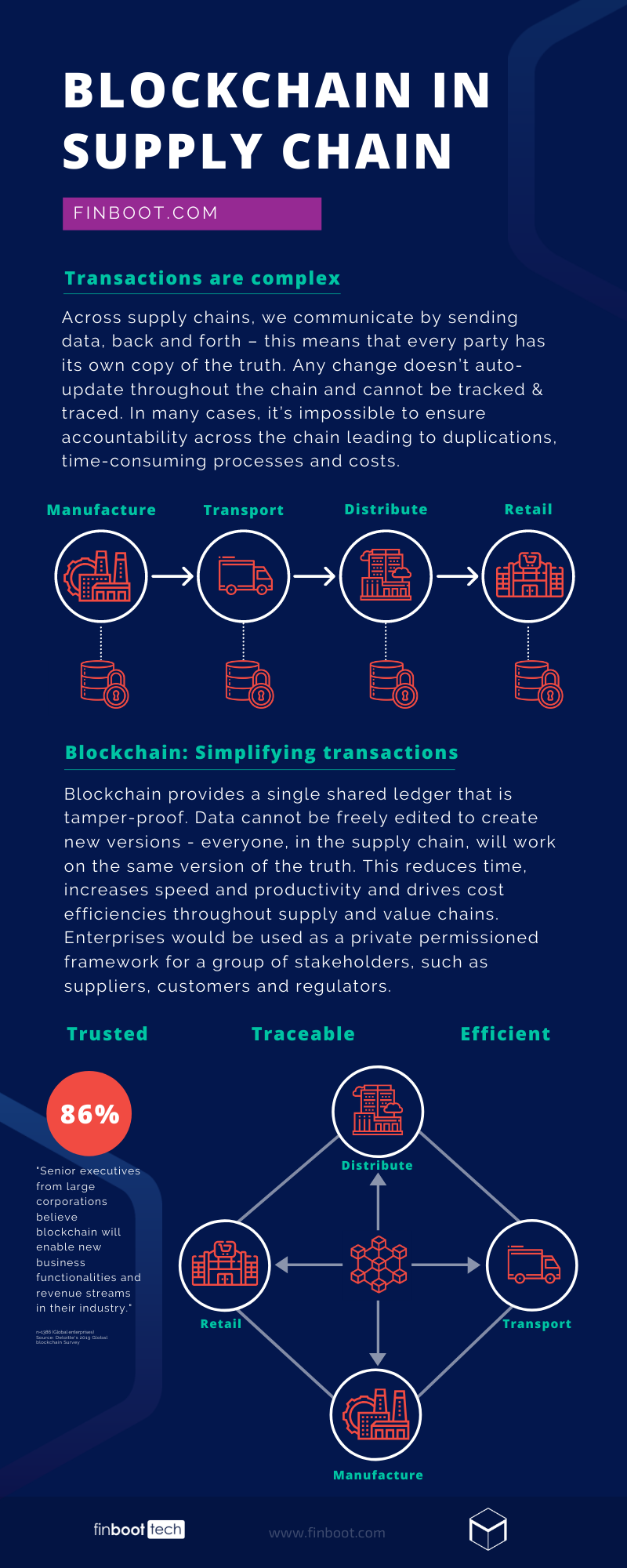We are bombarded with information on a daily basis across the various different communication mediums we use in our professional and personal lives. This news is then passed onto each other sequentially, through emails, WhatsApp messages and other apps and social media platforms, and the velocity is only increasing, particularly in isolation.
Supply chains operate in the same way, linked sequentially in a chain that passes information from one user to the next. We rely on each constituent to do their part and pass on information quickly and accurately, but, like a Chinese whisper, the data is never the same at the end as it is at the beginning.
However, what if we could guarantee that this information is accurate, immutable and derived from one of the most trusted sources of data capture? How could supply chains be transformed through the adoption of blockchain technology in times of crisis and in times of normality?
Most organisations are active in two supply chains, one physical and one financial. The financial one has the distinct advantage of being born digital while the physical one remains analogue and therefore significantly slower. Both need to be measured, monitored and tracked, so that the data extracted can be analysed and used to drive the next level of industrial automation, Industry 4.0.
However, what if one link is out of action being furloughed or unwell? How can the adjacent links maintain the bridge and keep the information and the supply chain moving?

COVID-19 risks to each link/person in the supply chain, much like a row of dominoes toppling until one link is missing. According to McKinsey, some 38% of supply chains are digitised and very few are using blockchain technology – the key to unlocking the connectivity.
Today’s supply chains are global, connected and generally efficient. Still, COVID-19 has placed a spotlight on our weaknesses. The focus on cost efficiency throughout supply chains demands evidence-based delivery: every component and process needs to be tracked to ensure that the final product can be verified and tracked back to its component parts, identifying where cost savings can be made and whether organisations are operating in the most efficient way possible.
Blockchain is the technology behind a distributed network of computers that can be used to store data securely but which, uniquely, has a single memory. That means data cannot be freely copied and edited to create an alternative version of the truth, which is why blockchain technologists refer to it as the ‘trust platform’.
In the enterprise context, the blockchain would be used as a private permissioned framework for a group of stakeholders, such as suppliers, customers and regulators. A recent survey by HFS Research and Wipro found that of 318 senior executives polled, 75% consider blockchain to be a strategic priority.
This will only continue to grow as accountability, auditability and cost efficiencies within supply chains are increasingly prioritised. After all, duplication, checking and re-checking data and its sources costs time and money, slowing down supply chain processes.
Furthermore, nearly 60% of these C-level executives anticipate that consensus-driven trust allows them to plan entirely new business models that were not possible before blockchain.
The global impact of COVID-19 will force us to reconsider what we want from our supply chains, whether this be costs efficiencies, or increased speed and agility. Unlike a row of dominoes, we also need supply chains that can withstand the next pandemic by creating a circle of trust, and not a sequential line with points that can fail.







